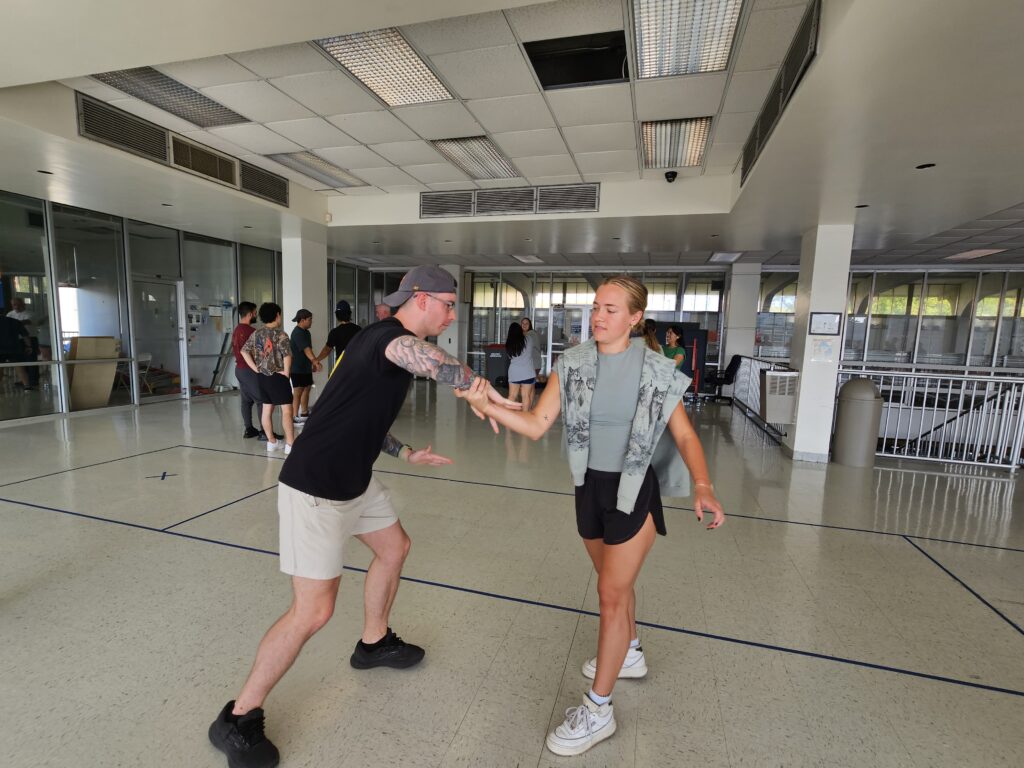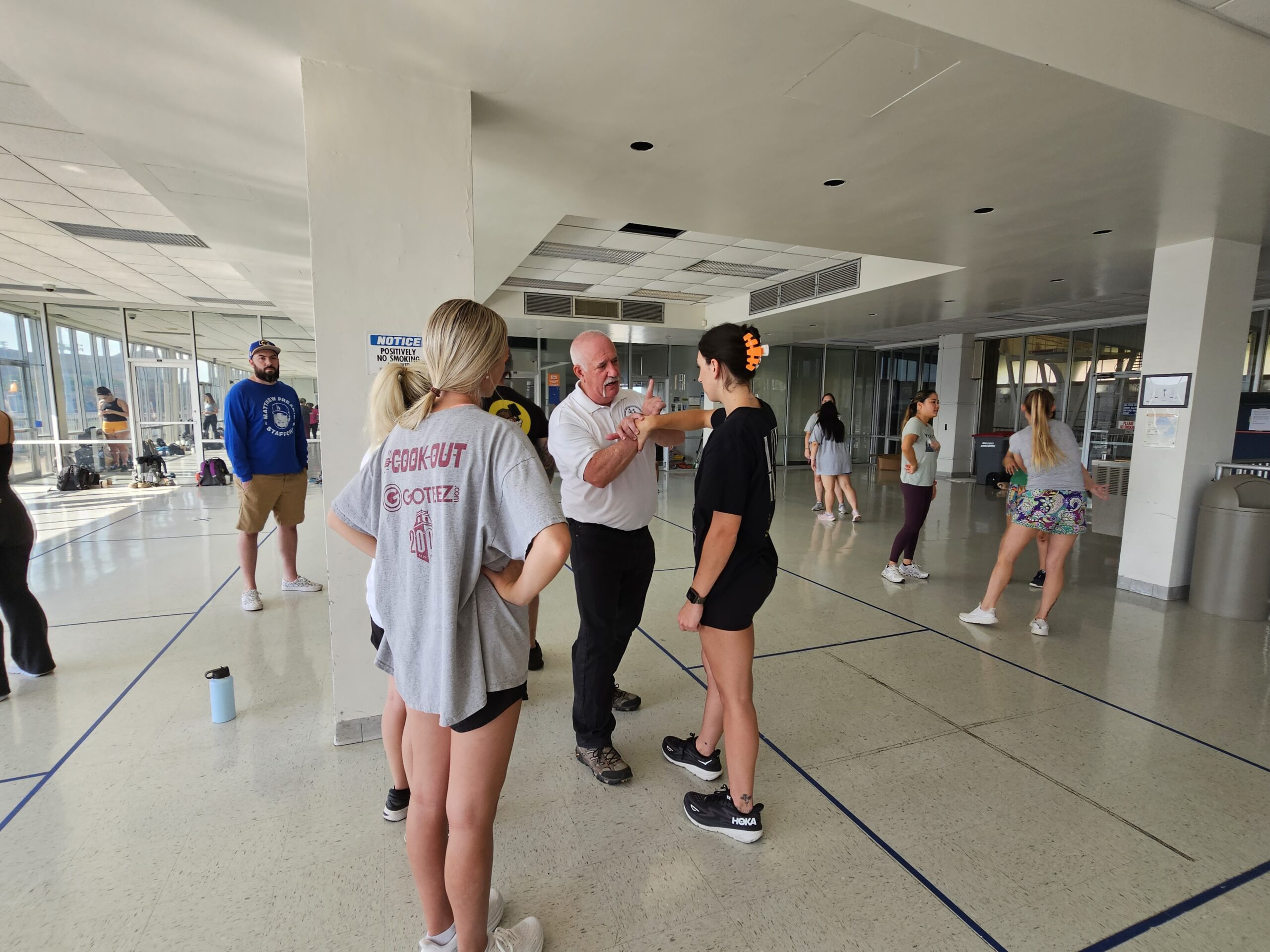According to the U.S. Bureau of Labor Statistics, health care and social service workers are five times as likely to suffer a workplace violence injury. One in four nurses reported being physically assaulted, according to a 2019 American Nurses Association Survey.
“These statistics are alarming,” said Victoria Niederhauser, dean of the College of Nursing. “We need to make sure we are preparing nurses for this.”
During the summer months, nursing faculty member Robin Hicks brainstormed ways to help nursing students learn self-defense.

“One of our students was physically assaulted by a patient during the clinical shift,” said Hicks. “We were already preparing for and focusing on student safety prior to this incident due to the increase in violence against healthcare workers. We added both de-escalation and self-defense courses into our ABSN curriculum to assist in providing our students the resources needed for their personal safety.”
Hicks approached Darren Gilbert, the IT technologist for the college and a karate instructor for the UT Martial Arts club and asked if he would be interested in teaching a self-defense course for nursing students. Gilbert saw the need and agreed.
Fifty-seven College of Nursing students took part in a four-hour self-defense class taught by Gilbert.
“I found it very helpful that we were able to practice the skills on each other after each demonstration,” said a student participant. “Not only did this help us put the skill into practice, but it also allowed us to be put into these vulnerable positions of being attacked. Without these conversations and practice, I would not have had any preparation and probably would be in complete shock if a patient attacked me. I now feel a little more prepared to react if a situation like this did arise.”
“I was very pleased to be able to teach this class, it holds a special and personal interest for me,” said Gilbert. “After high school, my mother was accepted into the nursing program at the Albany Medical Center in Albany, New York. She was also pregnant with me. During her clinical time in the program, she was assigned to the psychiatric ward in the medical center where a patient assaulted her, and she could not get the patient off. The orderlies eventually got the patient pulled off just short of too late, and I came just that close to not ever being born. So, being asked to teach this class was very meaningful to me.”
Learning these techniques provide students with knowledge they wouldn’t have had otherwise.
One student said, “I liked the class because it’s not what I’m normally used to since I’ve trained at gyms that teach you to fight as opposed to getting away from a patient. I really enjoyed the fact that the instructor was teaching us defense techniques specifically designed to protect us from an attacker.”
“Every situation will come with different escape methods, and having both self-defense courses has prepared me for a, hopefully, avoidable situation. I will continue to stay aware of my surroundings and avoid reaching over patients. I will also refrain from keeping my stethoscope around my neck. I appreciated these two self-defense courses and hope they continue,” said another student.
Gilbert and the College of Nursing are optimistic about offering these free classes throughout the year.
—
CONTACT:
Kara Clark (865-974-9498, [email protected])
Holly Hauck (865-974-8263, [email protected])
